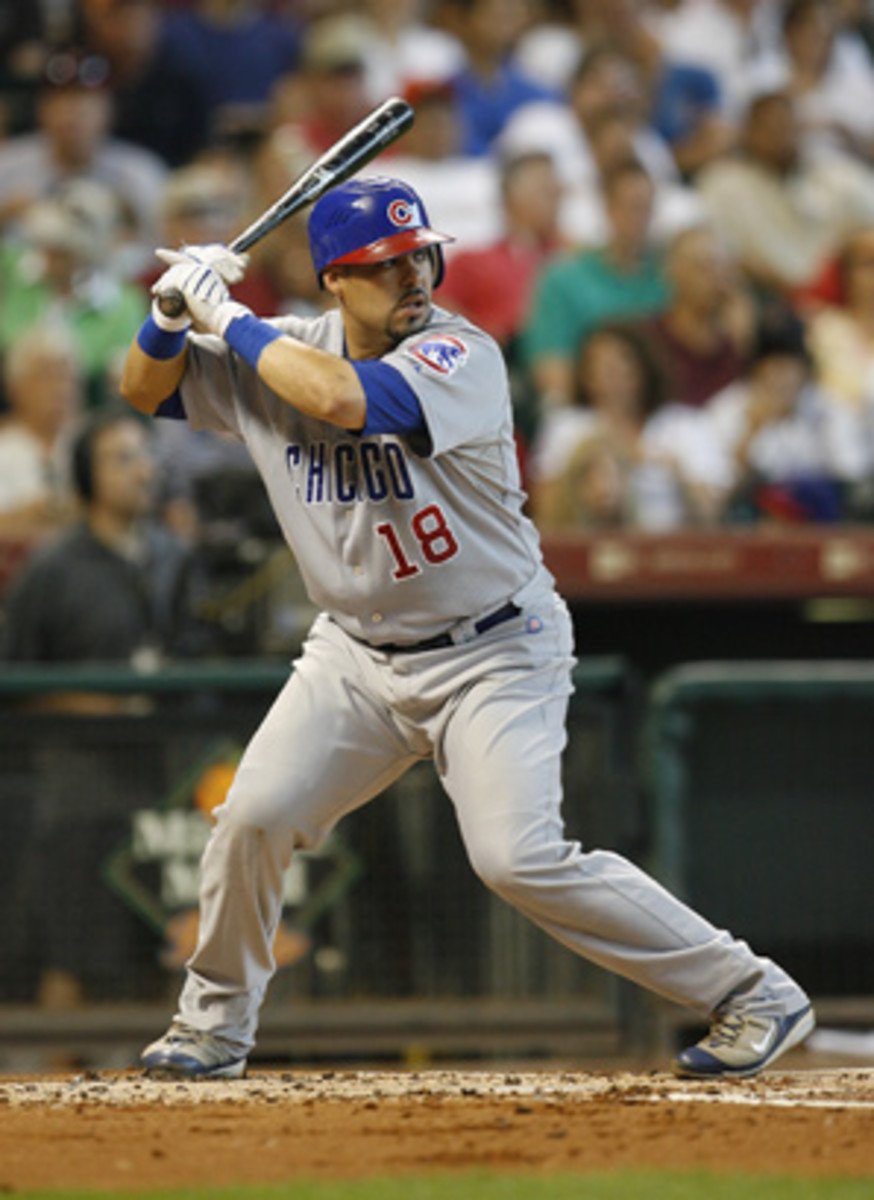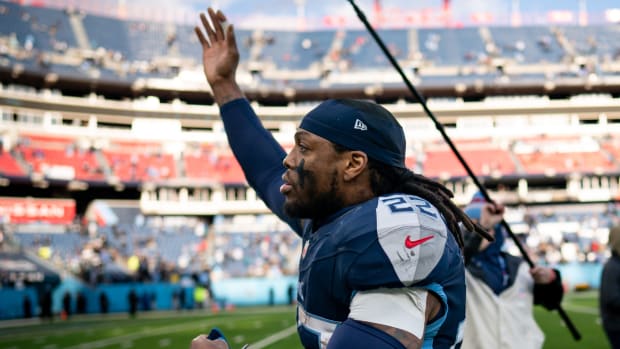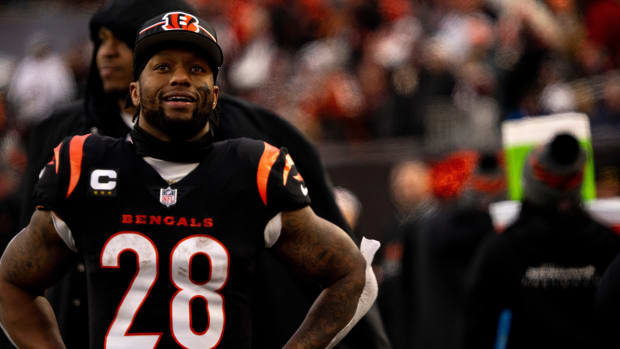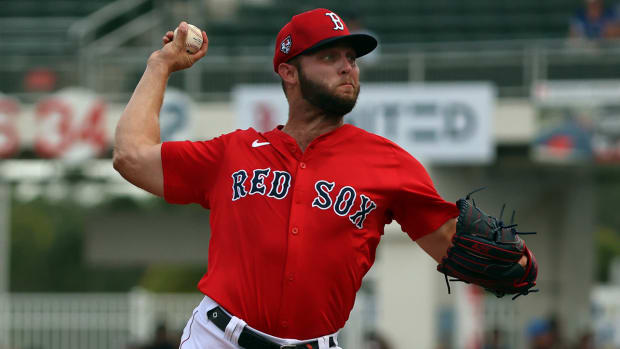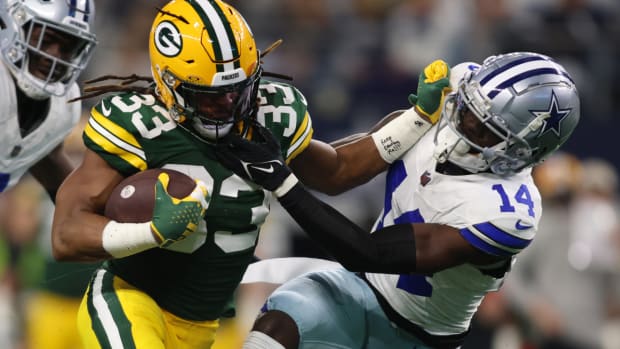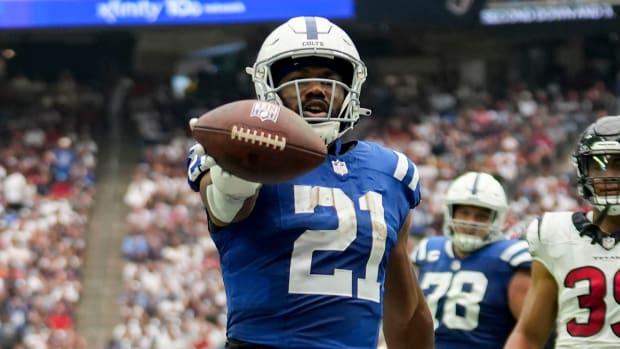Fantasy mailbag
Each week I'll answer a handful of the most pertinent questions I've received during the week in my attempt, weak as it might be, to bring insightful fantasy analysis to the fore (my email address is listed at the bottom of the piece if you wish to drop me a line).
Simple question for you: What the heck is wrong withGeovany Soto?-- Brian, Texas
Two things stand out: 1) his shoulder may still be bothering him, and, 2) a small sample size. We are speculating on point No. 1, but there is no denying point No. 2. Soto has only 29 at-bats this season during which time he has produced a mere three hits (.103). As unsettling as that is, the fact that he hasn't produced a single extra base hit after producing 23 home runs and 35 doubles as a rookie is certainly a great concern. However, keep in mind that we are only talking about 10 games here.
Now, if the shoulder woes drag on, I would become very concerned, but at this point I'm still going to remain patient with Soto if for no other reason than he has displayed fine plate control thus far. Last year he produced a walk rate of 11.2 percent. This year, that number is up to 17.1 percent. Last year, he struck out 24.5 percent of the time. This season, he has whiffed only 17.2 percent of the time. As a result, his "average" BB/K mark of 0.51 last season has more than doubled to a superb 1.20 on the young season. When his luck turns, and it will (his current BABIP is just .125), look for his average to spike, especially if he can hold on to any of the gains he has flashed in strike zone judgment thus far.
I need a closer, badly. What do you think about an offer of Glen Perkins and Kevin Millwood for Francisco Cordero?-- Aaron, Virginia
First off, both the pitchers you mentioned are great options for trading when their value is at their apex, as it currently is. Perkins has been one of the surprises of the early going with a 1.50 ERA in through his three starts, all of which have lasted eight innings. However his K/9 mark is still awful (4.50) and his WHIP average (1.34) isn't so hot either, not to mention the fact that he has been exceedingly lucky leading to a BABIP mark that is .07 points below his career mark of .293. When you add in the fact that this previously home run hobbled hurler hasn't allowed a single long ball in his 24 innings, you can certainly make a strong case that the gravy train is about to run dry.
As for Millwood, he is pitching like it's 1999 all over again with a 2.10 ERA and a 0.83 WHIP in his four starts. Alas, he too has been exceedingly lucky with a BABIP mark of .182 (his career mark is .307). When those batted balls start finding holes his numbers across the board will regress. Millwood is also undershooting his career BB/9 rate by almost a full batter at 1.80, which has helped him to offset a K/9 mark that currently sits at 5.10 (the number has not been below 6.41 since 2003). So we have a hurler with an out of nowhere ability to suddenly throw strikes which has helped to offset a sudden lack of strikeouts. Toss in the high luck factor and that Millwood pitches in a fantastic hitter's park in Texas, and it would be highly advisable to keep those expectations in check and move him now before things turn for the worse.
The bottom line? If you need a closer, trading these two middling starters who are off to hot starts for one would be a great idea. Cordero has had a bit of a roughly start to the year (1.43 WHIP, 1.50 K/BB) but he figures to right himself shortly. Again, due to the small sample size the numbers look much worse than they are, but regardless he still has a 1.29 ERA and he is 6-for-6 in converting his save chances. He has a big contract which almost assures he will hold on to the job, and Dusty Baker has long shown a propensity to run his closer out there quite frequently which is a great sign for Cordero. The road isn't always smooth with Cordero, but he has averaged 39 saves the past two years and there is no reason, baring injury, that he won't be able to approach that total once again in 2009.
I have an argument with my friend that Felix Hernandez will be better than A.J. Burnett this year. Do you think I'm crazy?-- Edward, Illinois
I don't think you need to book some time on a couch to talk to someone anytime soon. Here are the early returns which clearly point to the fact the King Felix has been a slightly better option in the early going.
Hernandez: 3.12 ERA, 1.23 WHIP, 9.35 K/9, 3.00 K/BB in 26 IP
Burnett: 3.20 ERA, 1.12 WHIP, 7.78 K/9, 1.89 K/BB in 19.2 IP
Clearly we are only talking about a handful of starts, but the fact of the matter is that Hernandez has shown himself to be the superior hurler so far. Let's look a bit further back in time and see what we can discern. Here are each hurler's numbers since the start of the 2007 season. How does Hernandez stack up in this comparison?
Hernandez: 3.65 ERA, 1.37 WHIP, 7.92 K/9, 2.58 K/BB in 417 IP
Burnett: 3.90 ERA, 1.27 WHIP, 9.38 K/9, 2.63 K/BB in 406.2 IP
Some might be surprised to find out that they have been nearly identical pitchers the past two plus seasons.
So does this data mean that Hernandez will be better than A.J. this season? I'm not Nostradamus so I don't know for certain. I do know that Felix is a power-pitching ground ball machine (2.28 G/F ratio in his career), and that is a wonderful combination in a young hurler. Hernandez also pitches in a better home park, has little of the expectations that anyone who wears pinstripes does, and has thrown at least 190 innings in each of the past three seasons. For all his skill, A.J. has proven that he simply cannot be counted on to take the hill every fifth day and in fact he has only three seasons of at least 190 innings in his 10 year career. Add that all up and I would say this -- I would prefer to have Hernandez as my fantasy ace over Burnett, that much I'm certain.
I'm thinking about offering a deal of Adrian Beltre for Brandon Inge. Do you believe that Inge can continue his hot start to the year, or is this offer one I shouldn't make?-- Nick, Darnestown, Md.
I would gladly accept this offer if you sent it to me. So, no, I wouldn't make it. Here's why:
(1) Inge owns a career batting average of .238 in 3,315 at-bats. He has also posted a batting average south of .250 each of the past two years while seeing his batting average decline in four straight years. That isn't the profile of a guy who is suddenly going to hit .300 (he is currently at .315). Beltre won't hit .300 either, he owns a .270 career average in his 5,897 at-bats, but he has been consistent with his production the past three years hitting between .266 and 276.
(2) Inge hit 27 home runs in 2006, and he already has six this year in just 15 games, but he just isn't a long-ball threat. Besides owning a decidedly average 10.3 percent HR/F ratio in his career, Inge has averaged just 15 home runs per 500-AB in his career. Beltre on the other hand owns a career HR/F rate of 13.7 percent, has hit at least 25 home runs in each of the past three seasons, and averages 21 home runs per 500-ABs in his career. He also is an RBI machine compared to Inge having posted at least 75-RBI each season since 2002 (he has averaged 90 a season in that time). Inge has posted as many as 75-RBI just once in his career (83 in '06).
(3) Inge owns a poor 24.6 percent K-rate in his career, including a mark of at least 22.7 percent in each of the past four seasons. Therefore, his current mark of 16.7 percent isn't at all likely to last. He is also overshooting his walk rate by a substantial margin at 14.3 percent (career 8.1). As a result, his BB/K mark, which sits at an atrocious 0.36 for his career, has been superlative so far at 1.00. There is zero chance that he'll maintais this level of strike-zone control, just another reason his batting average is likely to plummet. Beltre walks a bit less (7.3 percent) but he is also much better at making consistent contact with a K-rate of 17.3 percent. His plate discipline is therefore slightly better in his career (0.45), though he isn't exactly setting the world on fire either in this measure.
Inge is a fine option as a catcher, but his production figures to fall short of what you would like to see from a corner infielder, especially since we have likely seen his best run of the year in the first couple of weeks. Slow and steady often wins the race, and in this case I wouldn't be at all surprised to see Beltre lap Inge by the time it's all said and done -- especially from this point moving forward.
I thought Miguel Tejada was washed up? What's the deal with his hot start -- will it last?--Carlos, Highland Park, Texas
Reports of Tejada's demise were apparently premature as he is hitting .365 through 63 at-bats, though he hasn't gone deep yet. There is no disputing the fact that his skills are eroding, but he still brings enough to the table to be considered a starting at shortstop in mixed leagues.
The big concern with Tejada coming into the year was his horrific finish to '08 in the home run category, as he hit just three longs balls in his final 305 at-bats leading to his lowest home run output (13) since a partial season in 1998 (11 in 365 at-bats). In fact, Tejada has seen his home run total dip in each of the past four seasons, so everyone was predicting the end of his effectiveness as a hitter. While the power likely won't return to the 20-plus-home-run days we have been used to, he can still do enough at the dish to be effective.
Tejada continues to put the ball in play with a K-rate below 13 percent in each of the past seven seasons, and over the past five years his contact rate has been at least 87 percent, a very strong number (the major league average is about 80 percent). Given those facts, he figures to continue to be able to post a solid batting average (at least .283 the past five years). He also continues to hit in a prime spot in the Astros order, either fifth (22 at-bats) or second (41) this year, which helps his run production immensely (he has scored more than 85 runs in nine of the past 10 years while knocking in at least 80 runs in nine of the 10 years as well). And if you are looking for a plug-and-play option few are better than Tejada, who has topped 155 games played in nine of the past 10 years. Don't expect a return to the glory days for Tejada, but he still seems capable of pushing .300 while producing a strong amount of runs for a shortstop.
































